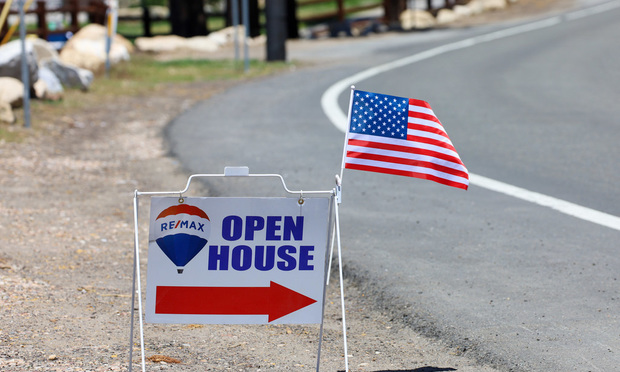Joe Plumeri, Willis's chairman and chief executive officer of Willis Group Holdings Ltd., said today his firm's $2.1 billion acquisition of Hilb Rogal & Hobbs Company will double its North American revenues and add Willis's global reach to the HRH local market presence.
Willis announced the merger Sunday in a transaction that the insurance brokerage said will strengthen its leadership in attractive growth markets. The new organization in North America will be renamed Willis HRH upon completion of the transaction.
Under the terms of the definitive agreement, Willis will acquire all of the outstanding shares of common stock of HRH for $46 a share--50 percent cash and 50 percent stock--in a transaction having equity value of approximately $1.7 billion and an "enterprise value," or total purchase price, of about $2.1 billion.
Mr. Plumeri said this price represents an "attractive valuation of 2.4 times estimated 2008 revenue, and less than 10-times estimated 2008 EBIDA [defined as earnings before interest expense, income taxes, depreciation and amortization] including the assumption of an estimated $400 million of HRH debt."
"I want you to know this is a thrilling day for all of us," Mr. Plumeri said in a conference call. "This transaction more than doubles Willis's North American revenues in a very complementary manner."
The transaction will create a more "robust and diversified global company with tremendous added strength in key markets and business lines," he added.
"Our plan in shaping our future called for enhancing our presence in major markets, increasing our employee benefits, increasing our personal lines and a lot of other things, which this transaction does for us," he continued.
He said the transaction will strengthen Willis's leadership as a middle-market broker and reinforce its large-account presence.
The transaction is "truly transformational for our North American business. Only HRH has the scale and fit in attractive growth areas to take our business, we think, to the next level," he said. The merger will help Willis accelerate growth building on "strong performance momentum we've achieved through shaping our future."
Mr. Plumeri said joining the firms will boost Willis's presence in key growth areas, including California, Florida, Texas, Illinois, New Jersey, New York, Boston and Philadelphia.
He said the merger also will mean doubling revenues of North American employee benefits business, adding that this is a "strong initiative for growing that business, because that business, we believe, is a wonderful hedge to the vagaries of the pricing markets that we go through."
The transaction will add "depth and breadth" to other key practice areas such as personal lines, which will more than triple, he said. Other areas include real estate, health care, environmental, construction, complex property and executive risk. "So the complementary forces here just couldn't be better," he said.
Willis will also bring a global footprint and specialist expertise to benefit HRH's retail network, Mr. Plumeri said. Outside the United States, he explained, "we'll be adding HRH's London-based operations to further expand the range of our specialty expertise and blend in with the things we do in London."
Willis expects to achieve annualized synergies of $100 million in 2010 through integrating operations, he said. "This only represents about an 8 percent of North America's pro forma 2007 expense, based on a combined basis and about 3 percent of the pro forma combined companies on a global basis."
On the topic of contingency fees, he said, "I know at this stage also, I should talk about the issue of contingents and what will happen in three years when the contingents go away."
He noted that HRH has about "$40-to-$50 million of contingency fees included in the transaction, which Willis will be allowed to take, as per an amendment signed by Willis and the [New York] Attorney General."
Willis agreed to give up contingency fees when New York authorities, after an investigation, accused brokerages as using them to mask kickbacks from insurers they rigged bids with.
A contingent, he said, is "nothing more than increased commissions that you get from placing business with an insurer. We believe we should get paid that anyway, simply because of our ability to do transactions."
The combined amount of premium placed into the market in North America between Willis and HRH, Mr. Plumeri added, is close to $20 billion. "What that amounts to in three years is nothing more than 25 basis points more of commission on the $20 billion, which is not a lot to ask for."
Overall, Mr. Plumeri said the transaction will "greatly strengthen our leadership as a middle market broker and reinforce our large accounts practice."
"Most of our business is middle-market business, both in the U.S. and around the world. Financially, joining forces will put us in an even stronger position to drive significant benefits for our Willis shareholders," he said
"We expect the transaction to be immediately accretive to cash earnings per share and accretive to GAAP earning per share in year-two," he explained
Over time, Willis said it plans to repurchase a majority of the shares issued in connection with the transaction under its previously approved $1 billion buyback plan.
Willis expects the acquisition to be accretive to cash earnings per share from the close and to GAAP earnings per share from year two.
Willis HRH will be led by an Office of the Chairman, including Don Bailey (now chief executive officer of Willis North America) as chairman and CEO, F. Michael Crowley (now president and chief operating officer of HRH) as president and Martin L. Vaughan, III (now chairman and CEO of HRH) as vice chairman of Willis Group Holdings.
Under the terms of the definitive agreement, HRH shareholders can elect to receive the merger consideration in the form of cash or shares of common stock of Willis, subject to proration in order to ensure that the cash and stock elections each represent 50 percent of the total consideration paid.
In addition, the cash consideration is subject to increase above 50 percent of the total consideration if the stock election represents less than 50 percent of the total consideration or to ensure that the number of shares issued by Willis does not exceed 19.9 percent of the total number of shares outstanding at the effective time of the transaction.
The definitive agreement includes a "collar." Half of the value of the per-share merger consideration, or $23 (representing the cash component), is always fixed--whether a shareholder elects to receive cash or stock, Willis explained.
The remaining value of the merger consideration (representing the stock component) is calculated based on the average trading price of Willis common stock during the 10-day period ending two days prior to the closing date.
Want to continue reading?
Become a Free PropertyCasualty360 Digital Reader
Your access to unlimited PropertyCasualty360 content isn’t changing.
Once you are an ALM digital member, you’ll receive:
- Breaking insurance news and analysis, on-site and via our newsletters and custom alerts
- Weekly Insurance Speak podcast featuring exclusive interviews with industry leaders
- Educational webcasts, white papers, and ebooks from industry thought leaders
- Critical converage of the employee benefits and financial advisory markets on our other ALM sites, BenefitsPRO and ThinkAdvisor
Already have an account? Sign In Now
© 2024 ALM Global, LLC, All Rights Reserved. Request academic re-use from www.copyright.com. All other uses, submit a request to [email protected]. For more information visit Asset & Logo Licensing.








